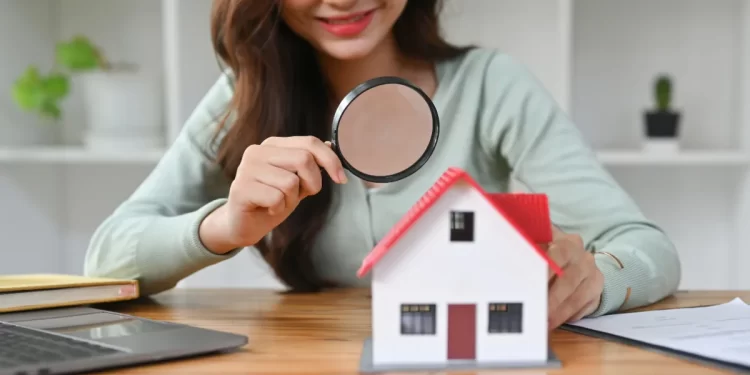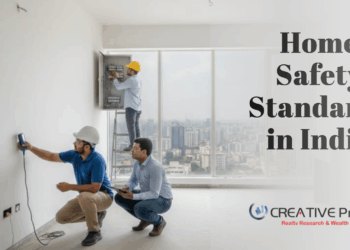Buying a home is one of the most important investments you’ll ever make.
And, you would want to make sure that the property is in good condition.
With the rise of online tutorials and DIY (do-it-yourself) culture, many homebuyers might be tempted to inspect the property themselves.
However, doing a home inspection on your own can be risky and lead to expensive mistakes.
In this blog, we’ll explore why you should avoid conducting a home inspection on your own and instead hire a professional.
What is a Home Inspection?
A home inspection is a detailed evaluation of a property’s condition.
It involves checking the structure, systems, and safety aspects of the home, including plumbing, electrical wiring, roofing, foundation, and more.
The goal is to identify any existing or potential issues that could affect the safety, comfort, or value of the home.
While it might seem simple to do on your own, a home inspection is a complex process that requires expert knowledge and tools.
Why Some Homebuyers Consider DIY Home Inspections
There are several reasons why homebuyers might consider doing the inspection themselves.
Firstly, hiring a professional home inspector comes at a cost, and some buyers may want to save money.
Secondly, with so much information available online, people might feel confident enough to check for basic issues.
Lastly, some may believe that visual observation alone is enough to determine whether a property is in good condition.
While these reasons may seem valid, they don’t account for the many risks and complexities involved in a home inspection.
Here’s why doing it yourself is not a good idea.
Lack of Expertise and Experience
One of the primary reasons you should not conduct a home inspection on your own is the lack of professional expertise.
Certified home inspectors undergo specialized training and have years of experience in identifying problems that most people wouldn’t even notice.
They know what to look for and understand how various systems within a house should function.
For instance, while you might be able to spot visible cracks in the walls, you may not be able to determine whether they indicate a serious structural issue.
A professional inspector, however, will recognize these signs and assess their severity accurately.
Overlooking Hidden Problems
Many problems in a home are not visible to the untrained eye.
A DIY inspection will likely focus on surface-level aspects such as paint, fixtures, or cracks in the walls.
However, major issues like faulty wiring, plumbing leaks, or poor insulation can remain hidden unless you know exactly where and how to look.
Professional inspectors use specialized tools like moisture meters, thermal cameras, and electrical testers to detect hidden problems.
For example, a moisture meter can reveal dampness inside walls or ceilings, which might lead to mold growth later on.
Thermal imaging can detect leaks, insulation gaps, or electrical overheating issues that could lead to fires.
Without these tools, it’s almost impossible to identify such problems.
Safety Risks
A home inspection isn’t just about checking for minor repairs or cosmetic issues; it’s also about ensuring the safety of the home’s occupants.
Some safety hazards, such as faulty electrical systems, poor ventilation, or gas leaks, can be extremely dangerous if not addressed.
As a homebuyer, you might not have the knowledge or expertise to detect these hazards.
For example, electrical wiring that looks fine on the surface could be outdated or improperly installed, leading to potential fire risks.
Similarly, poor ventilation in areas like the kitchen or bathroom can cause indoor air quality problems, leading to health issues.
A professional home inspector knows the safety standards and can identify whether the home meets them.
They can also recommend immediate actions to mitigate any risks.
Missing Out on Negotiation Power
A thorough home inspection report is one of the most powerful tools a homebuyer can have during negotiations.
If a professional inspector uncovers major issues, such as roof damage or foundation problems, you can use the report to negotiate with the seller for repairs or a reduced price.
However, if you conduct the inspection on your own, you might miss critical issues.
Even if you spot some problems, you won’t have the credibility of a professional inspector’s report to back you up in negotiations.
Sellers are more likely to take a certified inspector’s findings seriously, which can give you leverage in discussions.
Time and Effort
Conducting a thorough home inspection requires time, effort, and patience.
It’s not just about walking through the house and glancing at different areas.
A detailed inspection involves checking every part of the home, from the roof to the basement, and often takes several hours.
As a homebuyer, you may not have the time or energy to inspect the property in such depth.
You might rush through the process and miss important details, which could lead to costly repairs later on.
A professional inspector dedicates their time and effort to ensuring that every part of the house is examined thoroughly.
Lack of Specialized Tools
As mentioned earlier, home inspections require specialized tools that most homeowners don’t have.
For instance, tools like gas detectors, thermal imaging cameras, or moisture meters are essential for identifying problems that can’t be seen with the naked eye.
Purchasing these tools yourself can be expensive, and learning how to use them properly is another challenge.
Even with access to the tools, you might not have the technical expertise to interpret the results correctly.
Missing Out on Future-Proofing
A professional home inspector doesn’t just look for current issues.
They also assess the potential for future problems based on the home’s condition and age.
For example, they might warn you about an aging roof that could need replacement in the next few years, or plumbing systems that might soon require an upgrade.
As a layperson, you may not have the foresight to predict these future issues.
A professional inspector’s insights can help you budget for future repairs and maintenance, saving you money in the long run.
Stress Reduction
Buying a home can be a stressful process.
You already have enough to worry about—negotiating prices, handling paperwork, securing financing, and making sure everything goes smoothly.
Adding the responsibility of inspecting the home yourself only increases the stress.
Hiring a professional inspector allows you to delegate this important task to someone who knows what they are doing.
It gives you peace of mind, knowing that an expert has thoroughly examined the property and identified any potential issues.
Conclusion: Leave it to the Professionals
A home inspection is a critical part of the home-buying process.
It ensures that you are fully aware of the condition of the property before making one of the biggest financial commitments of your life.
While doing it yourself might seem like a way to save money, it can actually lead to costly mistakes.
By hiring a certified home inspector, you benefit from their expertise, specialized tools, and thorough evaluation of the property.
You also gain a valuable negotiation tool and, most importantly, peace of mind.
In the end, a professional home inspection is a small price to pay for ensuring the safety and security of your investment.
So, when you’re ready to buy your dream home, leave the inspection to the professionals and make an informed decision with confidence.








